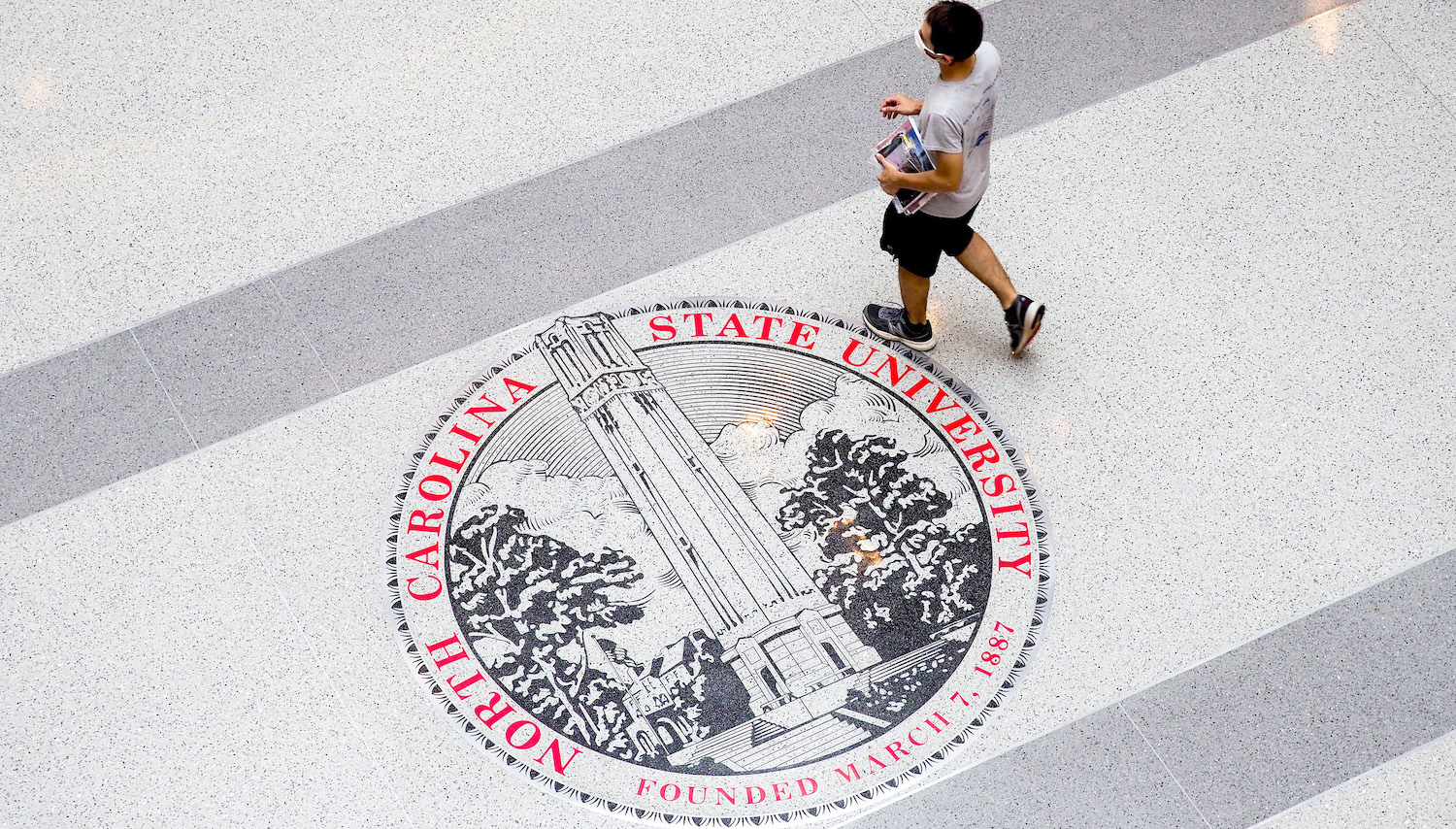This article first appeared in the September 2019 issue of Inside Supply Management® magazine, a publication of the Institute for Supply Management®, a Tempe, Arizona-based global supply management association. Author Sue Doerfler is Senior Writer for the magazine. The article is reprinted with permission.
North Carolina State University’s (NCSU) Poole College of Management recently made what it considers a long-overdue change: It added more analytics content to its undergraduate program, based on input from its Supply Chain Resource Cooperative’s board of advisers.
“Employers, particularly those who hire our undergraduate students, have been encouraging us for a few years now to introduce more analytics content,” says Don Warsing, associate professor of operations and supply chain management at NCSU in Raleigh, North Carolina. “They’ve encouraged us to emphasize Microsoft Excel skills and increase students’ comfort level with using the program by using it as a tool to analyze and present data in a way that allows managers to make better decisions.”
So, Warsing and his team revised a course that’s required for operations- and supply chain management-concentration undergraduate students. First offered during the 2018-19 academic year, the revamped course is built around five case studies that students analyze using Excel. “It was well received by the students,” Warsing says. “I’ve already had a few students who are now in jobs contact me to say they’re using the tools they learned about in the classroom, including some of the case scenarios we analyzed and the methods that were introduced to them in the course.”
To prepare the professionals of tomorrow so they can help organizations stay competitive in an evolving supply management profession, universities are increasingly incorporating trends and needs like data analytics and soft skills into their curricula. They are working with supply chain professionals to craft the courses, bringing in guest speakers to share experiences and hiring professors of practice — current or former supply managers — to teach courses. They’re developing certificate programs to enable students to pursue specialized areas of study and establishing supply management resource cooperatives and centers for supply management excellence where students, thought leaders and professionals can connect.
“I don’t think we’d be a good college of business if we weren’t listening to the marketplace,” says Warsing. “That’s really what drives this — the employers that are seeking our students, the feedback we’re getting from them, the kinds of jobs they’re offering and where our students are seeing success.”
Imparting Knowledge
Universities are in the business of creating and disseminating knowledge. “As professors, we are trained researchers,” says Thomas Choi, Ph.D., Harold E. Fearon chair of purchasing management at the W. P. Carey School of Business at Arizona State University in Tempe, Arizona. The university — which offers bachelor’s and master’s degrees in supply chain management and global logistics management, and a doctoral program — has formed partnerships with companies to advise on curriculum and research, as well as connect with students and faculty. “We teach our students theories and tools that are proven over time,” Choi says. “More than anything else, we need to teach them how to think and learn and make decisions.”
One area in which that is happening is data, which is becoming a component of many college programs, especially given the growing need for people with skills to extract decision support out of data. Rob Handfield, Ph.D., Bank of America Distinguished university professor and executive director of NCSU’s Supply Chain Resource Cooperative, says that part of that skill is understanding what makes good data and how to extract it.
“A lot of analytics work involves manipulation of the data in a format where you can use it: cleansing the data, making sure that it’s organized and that the taxonomies are correct,” he says. “So, working with data sets in general is an important part of what students learn through the practicum classes we offer with our corporate partners. We try to set the students up with projects where they are dealing with large data sets, including spend data, supplier quality data, or inventory data. They quickly realize that not all data is ‘good’ data. An important part of working with analytics is recognizing that the quality of the data is key to the quality of the insights derived.”
Practical Learning
One type of course helps students put what they learn into action: the practicum, which is part of the graduate as well as undergraduate program at NCSU, which has a business analytics honors track as part of the undergraduate program. At the graduate level, the university also offers a certificate in applied data analytics and data management in addition to an MBA with a concentration in supply chain management.
In a practicum course, students spend a semester on a project sponsored by a company partner. “Most of those projects involve working with a real data set that is messy: It doesn’t always present itself the way you thought it would,” Warsing says. “The students learn how to dig through the data to get to the kinds of answers they are looking for. Having a well-defined tool kit, where you know what kinds of software programs to apply and what kind of tools — like Excel or some of the advanced tools covered in our analytics tracks — can help them get to what they’re looking for in the data. That’s an important skill.”
Having that skill — and not having to learn it on the job — can be a big benefit for new graduates. “We hear back from students, ‘I learned so much in this project. Not only did I get the job because I could talk about the project on the interview, but once I started, I could start the job running,’” Handfield says. “There are definitely advantages to that practical-learning aspect in undergraduate courses. But we are also quick to point out the theoretical components of supply chain that come in handy when it comes time to analyzing the cleansed data.”
The theory-based courses are important so students understand how to go about applying practical learning. For example, the revised course doesn’t use real data sets — because it’s a theory based course — but it has a realistic focus, Warsing notes: “We want students to understand the key principles we are covering in class, and we’re using admittedly synthetic case data in order to emphasize those principles. Since this data is purposefully not very messy, students will understand what they’re looking for, the kind of decision they’re trying to make, and how to get there through this data. The hope is that later on, students will then be able to tie this theory to practice, either in a practicum course or future job.”
Since the courses mirror real-life experiences, students learn to recognize if they have the right data — or if they need additional data or information so that the right decisions can be made, Warsing says: “They learn that they may need to inform their organizations: ‘If you really want to make that decision well, there is another data item we don’t have at this point in time, but that you’re going to have to extract from within your business. If you did have that data, however, here is the decision you could make.’”
Communication Is Key
The ability to communicate with coworkers and managers is an important skill also being addressed in university supply chain management departments. For example, in NCSU’s redesigned course, students learn how to write a memo communicating data analysis and the resulting decision to management as part of the deliverable. “I structure it so it is only 250 words long — it has to be concise,” notes Warsing. Several times a semester, students are required to present their conclusions in written form. This teaches them how to communicate with stakeholders and others within the organization — and what management requires: the summary and the decision, but not necessarily how they arrived at them, he says.
“As our students get more technical, communicating to a less-technical audience becomes an important skill,” Warsing says. “So, a student may have done detailed mathematics and analysis, but if you have the right communications skills, you don’t have to walk your audience through the mathematical details to get them to understand the results. Being able to distill your analysis into a well-communicated result is also an important skill. That comes through practice.
“Our undergrads struggle with that. They want to go through the details and show you everything they did. Management doesn’t want to see the details. Managers want to be confident that you know what you’re talking about — and that you did the analysis — but ultimately, they want to know the decision elements and next steps.”
Upskilling Opportunities
In addition to courses that reflect current and future business needs, another trend is flexible programs, namely those for an online graduate degree. Such programs give students who can’t attend classes on-site — whether they live elsewhere or are working and want to upskill or change professions — the flexibility of completing the courses at times of their convenience. Some even enable students to work at their own pace.
In 2012, the University of Wisconsin-Platteville began offering classes in its Master of Science in integrated supply chain management online program, says David Heimerdinger, program coordinator and senior lecturer. Initially, the focus was to attract students from the Midwest, but thanks to partnerships with some University of California schools and their certificate programs, the online program is attracting students from a variety of locations, backgrounds and fields of study.
“We have students coming from all areas, including manufacturing and health care,” Heimerdinger says. “Many are students in the field trying to advance. Others are trying to get into supply chain areas and have degrees in other related or unrelated subjects.” Skills are the core of the program. The integrated approach includes the university’s industrial engineering and industrial studies departments and business school. Such an approach enables students to learn all aspects of business — beyond the curricula of business courses — which Heimerdinger says sets the degree apart and gives the university a niche.
“The focus, depending on the course, is from a different perspective,” he says. “Some of our courses are focused on business perspectives, others on industrial studies or the production side. And some offer an engineering perspective. For example, students may have a business degree but not an engineering background — but the courses they are taking are going to give them insight as to what an engineer’s role is in supply chain management.”
An integrated program is ideal for students who are already in supply chain roles, many of whom, Heimerdinger notes, “have been pushed into the roles through job changes or promotions. Once they’ve moved into the roles, they decide they want to further themselves and get the knowledge base that goes along with it. They’re using our program to catch up and get the big picture, so they understand it all.”
Most of the program’s students are looking to learn skills they haven’t gained from their undergraduate degree or working environment, Heimerdinger says: “We allow businesses to grow their own people. We provide the opportunity to learn the trade a bit faster.”
Future Thinking
Through certificate programs, company partnerships, courses tailored to trends and needs like data analytics, and other measures, universities today are training students to enter the workforce with skills they can use.
“If nothing else, we’re preparing students to critically think about the supply chain — about what new things that have come up as well as what’s new in technology,” Heimerdinger notes. “If nothing else, we’re creating better critical thinkers.”
Such an ability helps supply managers make better decisions, he says: “If you know what’s happened in the past, you know what is supposed to happen.” When a new challenge occurs, they can use critical-thinking skills to determine how to fix it, he says.
Choi concurs, saying, “What we do is teach our students appreciation, inclination and ability to think, reason and communicate with their coworkers. Then, after they graduate, they can begin to learn relevant things in their workplace. … Many more new things will come up — and they won’t be afraid to try them out.”
- Categories:



